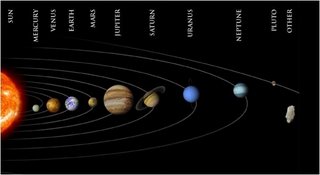If Christians were engines would they be fueled by a hatred of sin or by a loving concern for the plight of humanity? Do people become Christians because they share God's hatred of sin and seek the only way to be free from sin? Or is it because they are so truck with the depth of love God has for humanity?
First off, I don't think there are two independent options, but in general we Western Christians lean towards a bias in one of these two areas, and perhaps see them as two points on a one dimensional line.
A bias in the first direction seems to come from (or lead to) an understanding of God as primarily the punisher of sin. It leads to a preoccupation with deciding whether individual acts are sin according to Scripture. Once an act or practice is shown to be sin, it is then seen to be universally sin, ie for all time, in all places. A new law is written, and the church becomes the moral guardian of society convincing people that God is angry with them. The problem is that once people are saved by grace from sin, they either have to stick rigidly to this law code, or they find God once more angry with them. They know God forgives if they confess their sin, they know there is no new law in reality, but this does not square up with the motivation they had for becoming Christians, and their understanding of God's motivation.
A bias in the second direction might lead to seeing God primarily as lover of humanity seeking always the greater good of humanity. From a human viewpoint there is a danger of seeing God as a hedonist. The greater good of humanity is a fluid concept always changing as populations change, as dominant cultures rise and fall. Sin is anything that harms other humans, or the local community. Therefore a sinful act in one era is not a sinful act in another era. Since currently the right of self-determination for each individual, or each community within society, are seen to be essential to the greater good, there are less and less actions that can be considered sinful - certainly not universally sinful. The most sinful idea is the one that people need to be saved from something, since this implies an externally determined good.
Both of these are charicatures, but they are two possible trajectories for lines of thought that pass through one or other of the two motivations for being a Christian. This leads me away from the idea of a single dimensional line. Rather, these two motivations are supported by Scripture, (God loved t he world so much that he gave his only Son. So that those who believe need not perish [when God punishes sin]). so perhaps within a multi-dimensional reality there is a trajectory (neither of the two trajectories illustrated) that passes through both of these points. If so, the trajectory would also pass through a motivation of "love for God", based on God's love for himself (or would it be sourced there?).
he world so much that he gave his only Son. So that those who believe need not perish [when God punishes sin]). so perhaps within a multi-dimensional reality there is a trajectory (neither of the two trajectories illustrated) that passes through both of these points. If so, the trajectory would also pass through a motivation of "love for God", based on God's love for himself (or would it be sourced there?).
Did the Trinitarian God love himself so much that he tri-laterally gifted space within himself for creation, and its kingpin, humanity. Does God love himself so much that this humanity was to be given rights of personhood within the Trinity to fully relate to the Trinity in the fulness of its being? Is sin not anything that turns humanity in on itself to rely on itself rather than the Triune source of life. (Does this not include a new law as much as it includes the rejection of externally-determined good). Does this turning in on itself not deny the very life that sustains it, and rejects the interpenetrating love of God, making humanity a foreign body in the divine life. Did God penetrate anyway through the Son becoming man, taking on the rejection of the foreign body for himself and inviting humanity to participate in the interpenetrating love by giving up their own lives to enter into the life of Christ, making it clear that to do so would lead to the fulness of being and participation in the divine life, whereas failure to do would be to participating in the foreign body that would be rejected from the divine life.
I seem to remember once talking about concrete reality ...
First off, I don't think there are two independent options, but in general we Western Christians lean towards a bias in one of these two areas, and perhaps see them as two points on a one dimensional line.
A bias in the first direction seems to come from (or lead to) an understanding of God as primarily the punisher of sin. It leads to a preoccupation with deciding whether individual acts are sin according to Scripture. Once an act or practice is shown to be sin, it is then seen to be universally sin, ie for all time, in all places. A new law is written, and the church becomes the moral guardian of society convincing people that God is angry with them. The problem is that once people are saved by grace from sin, they either have to stick rigidly to this law code, or they find God once more angry with them. They know God forgives if they confess their sin, they know there is no new law in reality, but this does not square up with the motivation they had for becoming Christians, and their understanding of God's motivation.
A bias in the second direction might lead to seeing God primarily as lover of humanity seeking always the greater good of humanity. From a human viewpoint there is a danger of seeing God as a hedonist. The greater good of humanity is a fluid concept always changing as populations change, as dominant cultures rise and fall. Sin is anything that harms other humans, or the local community. Therefore a sinful act in one era is not a sinful act in another era. Since currently the right of self-determination for each individual, or each community within society, are seen to be essential to the greater good, there are less and less actions that can be considered sinful - certainly not universally sinful. The most sinful idea is the one that people need to be saved from something, since this implies an externally determined good.
Both of these are charicatures, but they are two possible trajectories for lines of thought that pass through one or other of the two motivations for being a Christian. This leads me away from the idea of a single dimensional line. Rather, these two motivations are supported by Scripture, (God loved t
 he world so much that he gave his only Son. So that those who believe need not perish [when God punishes sin]). so perhaps within a multi-dimensional reality there is a trajectory (neither of the two trajectories illustrated) that passes through both of these points. If so, the trajectory would also pass through a motivation of "love for God", based on God's love for himself (or would it be sourced there?).
he world so much that he gave his only Son. So that those who believe need not perish [when God punishes sin]). so perhaps within a multi-dimensional reality there is a trajectory (neither of the two trajectories illustrated) that passes through both of these points. If so, the trajectory would also pass through a motivation of "love for God", based on God's love for himself (or would it be sourced there?).Did the Trinitarian God love himself so much that he tri-laterally gifted space within himself for creation, and its kingpin, humanity. Does God love himself so much that this humanity was to be given rights of personhood within the Trinity to fully relate to the Trinity in the fulness of its being? Is sin not anything that turns humanity in on itself to rely on itself rather than the Triune source of life. (Does this not include a new law as much as it includes the rejection of externally-determined good). Does this turning in on itself not deny the very life that sustains it, and rejects the interpenetrating love of God, making humanity a foreign body in the divine life. Did God penetrate anyway through the Son becoming man, taking on the rejection of the foreign body for himself and inviting humanity to participate in the interpenetrating love by giving up their own lives to enter into the life of Christ, making it clear that to do so would lead to the fulness of being and participation in the divine life, whereas failure to do would be to participating in the foreign body that would be rejected from the divine life.
I seem to remember once talking about concrete reality ...


